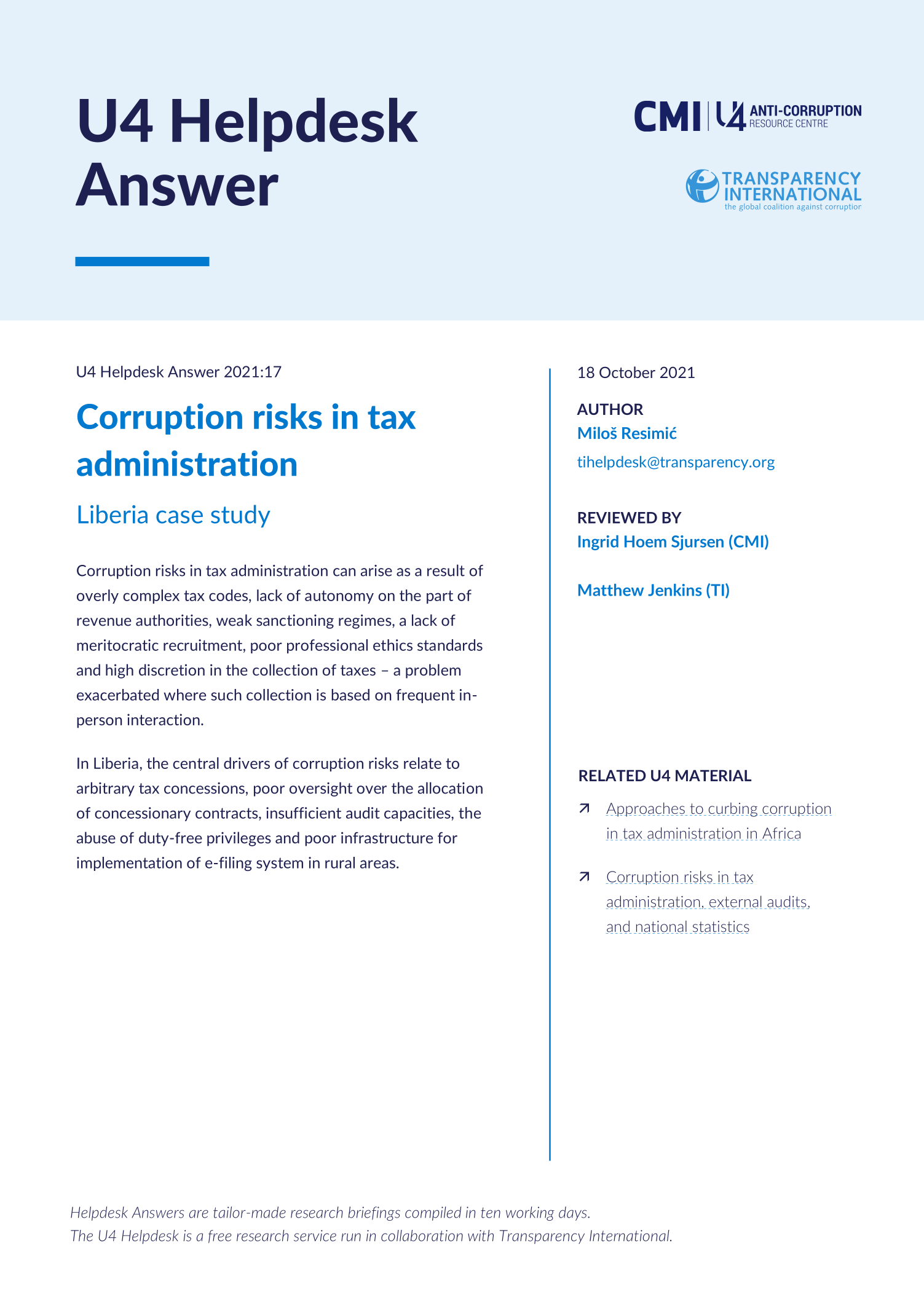Main points
- Corruption risks in tax administration can be assessed according to whether they occur at the policymaking, organisational resources or client interface stages.
- Key drivers of corruption risks in tax administration include overly complex tax regulations, a weak sanctioning regime, a lack of meritocratic recruitment, a lack of checks and balances, modes of tax collection based on frequent in-person interaction.
- In Liberia, key underlying drivers of corruption include arbitrary tax concessions, poor oversight over allocation of concessionary contracts, insufficient audit capacities, abuse of duty-free privileges, poor infrastructure for the implementation of their e-filing system.
- Potential mitigating strategies in Liberia include introducing a database of existing tax concessions for evaluation, improving audit capacities of the LRA, strengthening broker certification requirements, reviewing tariffs and payment systems, particularly with regards to excise tax, improving infrastructure to enable broader access to automated tax payment.


